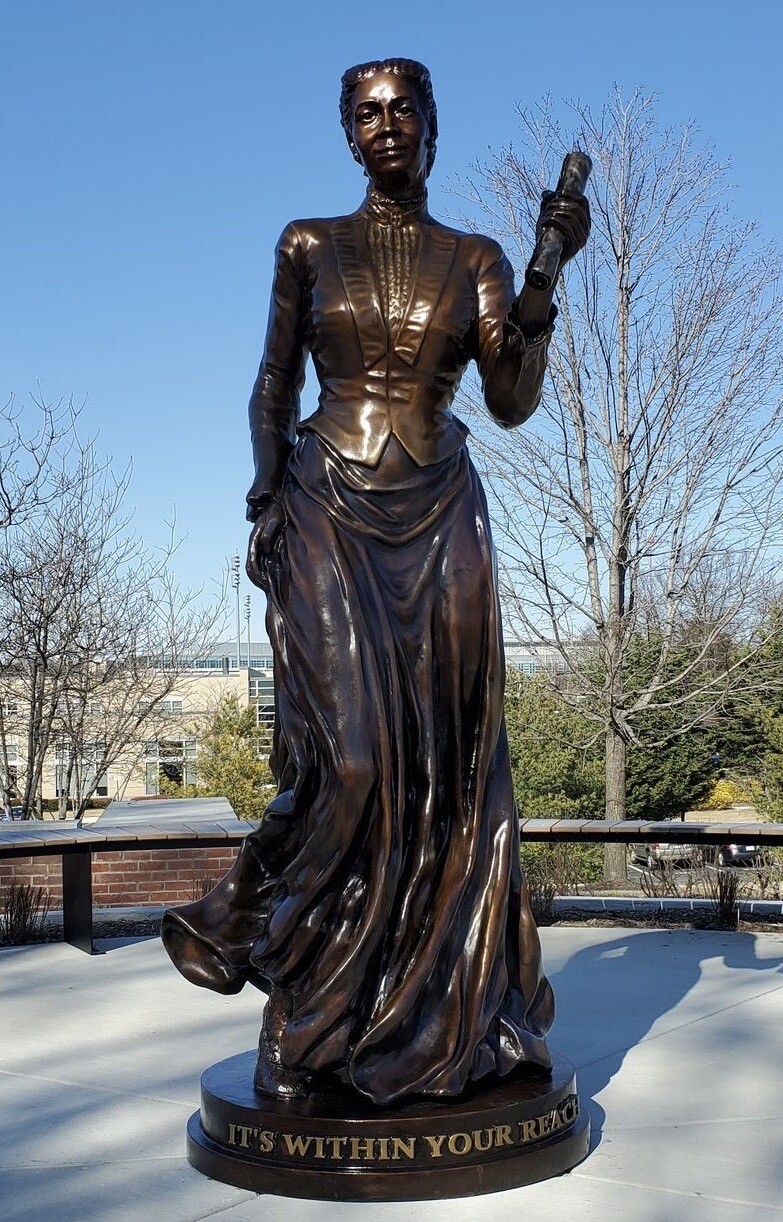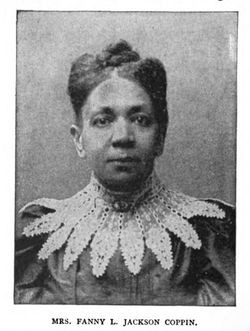by
_____
A new statue honors Fanny Jackson Coppin — teacher, educator, activist, women’s advocate, and powerful public speaker.
Unveiled in a dedication ceremony last week at Coppin State University in Baltimore, the statue shows Coppin grasping a sheaf of papers and a book — the keys to knowledge — fitting for a woman who had a passion for education and understood its transformative potential.
“Why educate the woman — what will she do with it?” she asked in an 1893 speech at the Chicago World’s Fair. “An impertinent question, and an unwise one. Rather ask, “What will she be with it?”

Coppin was born in slavery and gained her freedom when she as 12 and her aunt purchased her. Thirsty for knowledge, Coppin had to work as a domestic. By 14, she was supporting herself in Newport, Rhode Island, and determined to go to school.
As she later explained, “She (her aunt) put me out to work, at a place where I was allowed to go to school when I was not at work. But I could not go on wash day, nor ironing day, nor cleaning day and this interfered with my progress.”
She attended Rhode Island State Normal School, and in 1860 she enrolled at Oberlin, the first college in the country to accepted both black and female students. There she fell in love with the classics.
In her senior year, as the end of the Civil War approached, she established a night school in Ohio to educate freed slaves.
She was the second Black woman to graduate from Oberlin, then became a high school teacher at the Institute for Colored Youth, a Quaker school in Philadelphia, where she taught Greek, Latin and math. In four years she was promoted to head the Ladies Department — making her the first Black woman in the nation to become a school principal.
“Why educate the woman — what will she do with it? An impertinent question, and an unwise one. Rather ask, “What will she be with it?”
In her more than thirty years at the institute, she expanded the curriculum to include an Industrial Department, established a Women’s Industrial Exchange to develop the mechanical and artistic works of young women, and founded a Home for Girls and Young Women for workers from out of town.
She was a fervent believer that to fulfill their academic potential, Black students should have choice in their educational curricula.
She also wrote newspaper columns for the Christian Recorder in Philadelphia that defended the rights of women and Blacks.

In 1881, she married Rev. Levi Jenkins Coppin, an AME minister, then traveled with him to Cape Town, South Africa, to found a missionary school. In 1907 she passed away in Philadelphia.
In her autobiography, Reminiscences of School Life and Hints on Teaching, written in the last year of her life and published after her death, Coppin explained the centrality of education to her life’s mission.
“It was in me to get an education and to teach my people. This idea was deep in my soul.”
© Copyright 2022
________________________________
Want to talk? Reach me at dana@danarubin.com

